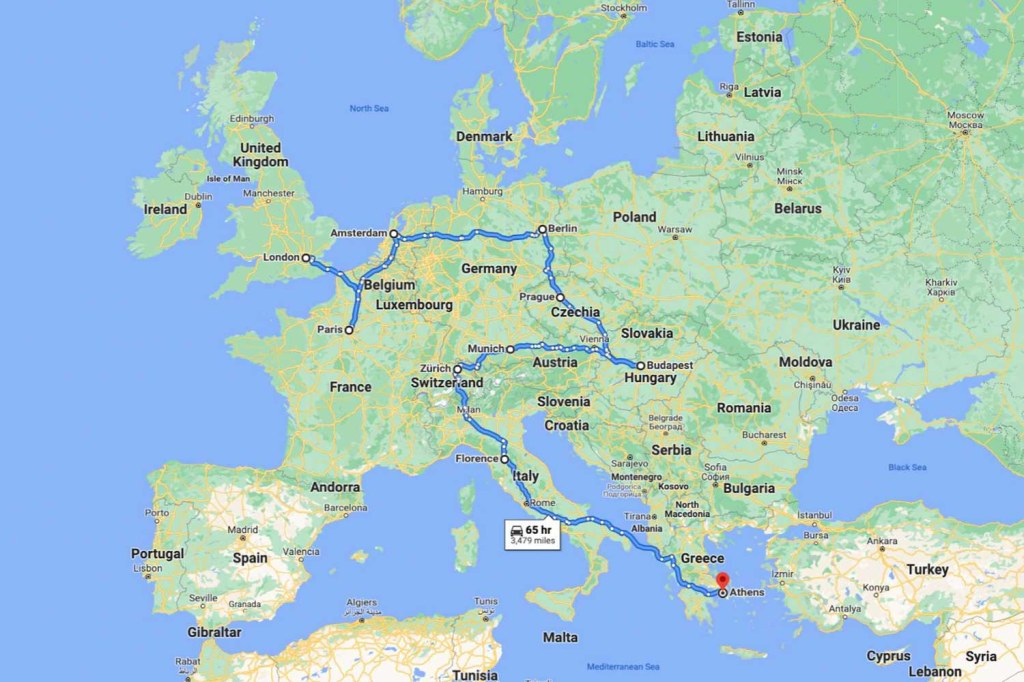Travel Planning for Europe
Introduction
Dear Readers,
Welcome to this comprehensive guide on travel planning for Europe. As the dream destination for many, Europe offers a diverse range of cultures, landscapes, and experiences that attract millions of tourists every year. Whether you’re a first-time traveler or a seasoned explorer, this article will provide you with valuable insights and tips to plan your trip effectively and make the most of your European adventure.

Image Source: travelandleisure.com
In this guide, we will cover everything from the basics of travel planning to the best time to visit, popular destinations, and the pros and cons of traveling in Europe. So, let’s dive in and start planning your dream vacation!
Table of Contents
1. What is Travel Planning for Europe?
2. Who Should Consider Traveling to Europe?
3. When is the Best Time to Visit Europe?
4. Where to Go in Europe?
5. Why Choose Europe as Your Travel Destination?
6. How to Plan Your Trip to Europe?
7. Advantages and Disadvantages of Traveling in Europe
8. FAQ
9. Conclusion
10. Final Remarks
What is Travel Planning for Europe? 🌍
Travel planning for Europe refers to the process of organizing and arranging your trip to one or multiple European countries. It involves researching destinations, creating itineraries, booking flights and accommodations, arranging transportation, and ensuring you have all the necessary documents and travel essentials.
By carefully planning your trip, you can maximize your time, budget, and overall experience in Europe. It allows you to explore the diverse cultures, historical landmarks, natural wonders, and culinary delights that Europe has to offer.
…
7. Try to learn a few basic phrases in the local language of the countries you plan to visit. It can greatly enhance your interactions with locals and show your respect for their culture.
Advantages and Disadvantages of Traveling in Europe 🌞🌍
Advantages:
1. Rich History and Culture: Europe is home to numerous historical sites, museums, and cultural events that offer a deep understanding of the continent’s heritage.
2. Accessibility: Europe has a well-connected transportation system, making it easy to travel between countries and cities.
3. Diversity: From stunning landscapes to bustling cities, Europe caters to every traveler’s preferences.
4. Culinary Delights: European cuisine is renowned worldwide, and trying local dishes is a highlight of any trip to Europe.
5. Safety: European countries are generally safe for travelers, with low crime rates and reliable healthcare systems.
Disadvantages:
1. Cost: Europe can be expensive, especially in popular tourist destinations.
2. Crowds: During peak travel seasons, popular attractions can be overcrowded, affecting the overall experience.
3. Language Barrier: While English is widely spoken, there may be language barriers in some remote areas.
4. Schengen Visa: Non-EU citizens may require a Schengen Visa to travel within the 26 member countries.
5. Limited Time: With so much to see and do, it can be challenging to fit everything into a single trip.
FAQ
1. Is it necessary to book accommodations in advance?
Answer: It is recommended to book accommodations in advance, especially during peak travel seasons, to secure the best options and prices.
2. Do I need travel insurance for my trip to Europe?
Answer: While travel insurance is not mandatory, it is strongly recommended to protect yourself against unexpected events such as trip cancellations, medical emergencies, or lost luggage.
3. Are credit cards widely accepted in Europe?
Answer: Credit cards are widely accepted in most European countries, but it’s advisable to carry some cash for small businesses or places that may not accept cards.
4. Can I use my mobile phone in Europe?
Answer: Yes, you can use your mobile phone in Europe, but it’s important to check with your service provider regarding international roaming charges or consider buying a local SIM card.
5. Are there any specific dress codes in European countries?
Answer: While there are no strict dress codes, it’s recommended to dress modestly when visiting religious sites or upscale establishments.
Conclusion
In conclusion, travel planning for Europe is an essential step to ensure a smooth and enjoyable trip. By considering factors such as the best time to visit, popular destinations, and the advantages and disadvantages of traveling in Europe, you can tailor your experience to your preferences and make the most of your time on the continent.
Remember to plan ahead, stay open-minded, and embrace the rich cultures and experiences that Europe has to offer. So start planning your dream European adventure today, and create memories that will last a lifetime!
Final Remarks
Dear Readers,
Traveling to Europe is an exciting and transformative experience. However, it’s essential to stay informed and keep up with any travel advisories or guidelines provided by the authorities. Make sure to check visa requirements, entry restrictions, and health and safety precautions before embarking on your journey.
While this article provides a comprehensive guide, it’s always recommended to do additional research and consult official sources for the most up-to-date information. Remember to respect local customs, be mindful of your surroundings, and have a memorable and enjoyable trip to Europe!